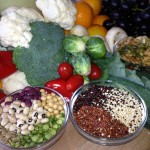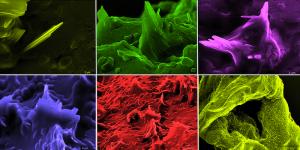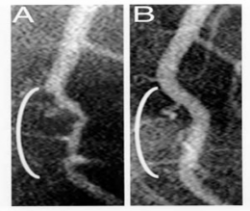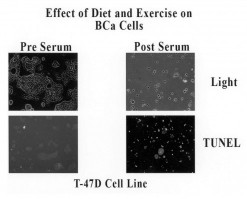 1. What is an Evidenced-Based Diet?
1. What is an Evidenced-Based Diet?
It is a diet that is based on strong scientific evidence rather than cultural norms and beliefs about which foods promote good health. You would think that once we knew the science we would know what to eat, but that is not how the mind works. When new scientific evidence clashes with deeply ingrained unconscious cultural beliefs, the unconscious beliefs usually win and the scientific evidence is usually rejected or ignored. This is called cognitive dissonance, and most people are actually unaware of the process, the new information just feels wrong somehow. The scientific evidence clearly shows that eating animal products -meat, chicken, fish, milk, cheese, butter and eggs -is strongly associated with an increased risk of disease and death from all causes. Virtually every study that ever compared people who did and did not eat animal products found that people who either did not eat animal products or ate limited amounts had better health outcomes. An evidenced-based diet is a diet of whole unprocessed or minimally processed plant foods and no animal products. If you’re thinking vegan, yes but refined sugar, white flour, oils and soda are all “vegan” products. You want to eliminate highly processed foods along with the animal products.

The sharp spikes are cholesterol crystals that activate inflammation in the lining of your arteries. (Photo credit: Image courtesy of Michigan State University. The colors have been added for enhancement and imagery)
2. Why should I eliminate animal products from my diet?
The five big reasons are high blood pressure, heart attacks, strokes, cancer and diabetes but there are many more health problems such as acne, arthritis, erectile dysfunction, gallbladder disease, kidney stones, osteoporosis, and psoriasis completely resolve when you eat a nutrient-dense plant-based diet. We think of high blood pressure, heart attacks, strokes and high cholesterol levels as separate problems but they are all related to the same underlying disease process, damage to cells that line our arteries. Arteries are the blood vessels that supply nutrients and oxygen to the all cells of our bodies. A study published in the journal Nature, April 29, 2010 showed that dietary cholesterol, the cholesterol that you eat, forms crystals in your blood. The sharp spikes in the image on the left are cholesterol crystals. These crystals tear the lining of your arteries and start the inflammatory process that leads to plaque build-up and clogged arteries. The only source of cholesterol in our diet is animal products. When you stop eating artery damaging animal products and start eating a diet of nutrient dense plant foods you will provide the environment for your arteries to become unclogged and they will heal themselves.The image shows the difference.

Coronary angiograms showing arteries before and after a plant-based diet. A- Clogged Arteries. B- Opened Arteries after 32 weeks on a cholesterol-free diet. Image from Prevent and Reverse Heart Disease by Caldwell Esselstyn, MD
Cancer is caused by a genetic mutation that leads to abnormal cell replication. Animal protein promotes the growth of abnormal cancer cells. A diet of whole unprocessed /minimally processed plant foods stops the growth of cancer cells. The image on the left shows the death of breast cancer cells after contact with serum from women on a plant based diet. That’s right; serum is the clear liquid in your blood. When you eat a plant based you create a hostile environment for cancer cells to grow in your body. These are just some of the health reasons to eliminate animal products, but the best reason is that you will have more energy and stamina to fully enjoy your life.
3. How do you know that my arteries are clogged without testing me?
Autopsy studies on young people who die in traffic accidents or at war have consistently found that all; yes all who ate the standard American meat-based diet had some stage of vascular damage and cardiovascular disease. If you are doing what everyone does you will get what everyone has.
4. OK, but if I stop eating animal products where will I get protein? The answer is: the same place that that the largest and strongest land mammals such as elephants and giraffes get their protein, from plants. Humans make protein out of the amino acids they get from the food they eat. When you eat a piece of chicken you digest the chicken protein and break it down to get amino acids that you can then use to make your own protein. All plant foods have protein that we digest and break down into amino acids to make the proteins we need. There are 8 essential amino acids that we cannot make and have to get from food; most plants have all 8 essential amino acids. In 1950s before we knew the dangers of eating eggs nutritionists believed that the amino acid composition of an egg was complete. Plants are not eggs, so although they have all the essential amino acids it was not in the perfect/complete combination so they were considered incomplete proteins. We now know that people who eat the most eggs have the highest rates of heart disease, strokes and diabetes and people eating plant proteins have none of these problems. We also know with certainty that calorie for calorie plant foods have the same, and in many case more protein than animal products, without the health destroying side effects. The problem is that most doctors and dietitians don’t know this yet and they still advise patients that getting “lean protein” means eating an animal body part.
| Which has more protein, 100 calories of broccoli or 100 calories of sirloin steak? | ||
|
Nutrients in 100 Calories of Food |
||
| Broccoli | Sirloin Steak | |
| Protein | 9.4/11.1 g | 6.4/7.5 g |
| Cholesterol | 0 | 5.5 mg |
| Calcium | 322 mg | 2.4 mg |
| Iron | 3.5 mg | 0.7 mg |
| Fiber | 4.7 g | 0 |
| Vitamin A | 7750 IU | 24 IU |
| Vitamin C | 350 mg | 0 |
| Vitamin E | 26 IU | 0 |
| Cancer- fighting phytonutrients | High | None |
| Weight | 307 g (10.6 oz) (3 cups) | 24 g (0.84 oz) |
|
You can see it’s the broccoli. The numbers vary depending on how small the broccoli is chopped and how much fat is on the steak but you can see that broccoli clearly has more protein than steak. Food values from the USDA Handbook |
||
5. Does that mean no egg whites, fat free milk, and low-fat yogurt?
Yes, there are far more delicious ways to get protein with lots more nutrients than eating these foods. Animal proteins stimulate the production of IGF-1(Insulin-like Growth Factor -1) which promotes cancer cell growth.
6. Do I have to eliminate all oils? Aren’t there some good oils?
Yes, whenever possible eliminate processed foods. Oils are highly processed concentrated fats that do not exist in nature. They add empty fat empty fat calories to the diet with relatively few nutrients and no fiber. We get oil from “squeezing” a whole source such as olives and then discarding the fiber and other nutrients. We need fats, but it’s better to get them from whole sources such as nuts, olives and avocados. Nitric oxide is a gas released by the cells lining your arteries to keep the arteries open, oils and greasy foods block nitric oxide production. Cooking with oil is a part of many cultural cuisines, so when you eat out or have a meal cooked by family and friends it may not be possible to avoid oils. At those times enjoy the dish consciously, eating slowly and actually tasting the greasiness. When you are on your own learn to make oil-free dishes and salad dressings with whole fats and taste the difference.
7. Should I take fish oil supplements?
The answer is loud, strong NO. There are 2 essential fatty acids, alpha linolenic acid (ALA/omega-3) and linolenic acid (LA/ omega-6). They are called essential because our bodies cannot make them. We eat lots of Omega-6 which is found in animal products and vegetable oils. We eat less Omega-3 which is found in leafy greens, nuts, seeds and fatty fish that eat omega-3 rich seaweed. The ratio of omega-6 to omega-3 fatty acids in the diet should be close to 2:1, but in the American diet it is about 20:1. We have an imbalance of omega-6 to omega-3 not a true deficiency of omega-3. If we ate less omega-6 foods and more foods with a 1:1 ratio such as leafy greens there would be no problem, but instead of advising us to eat whole nutrient-dense foods, “health experts” advised us to eat more omega-3 in the form of fatty fish or fish oil supplements. The reason given is that omega-3 in fish and fish oil are the same as the active omega-3 fats in our bodies, docosahexaenoic acid (DHA) and eicosapentaenoic acid (EPA). Our bodies convert ALA/Omega-3 from plants into DHA and EPA, but in small quantities, about 7 to 15 % of ALA/Omega-3 is converted to EPA and even less is converted to DHA. We used to think this was a bad thing, but this may actually be protective. The Prostate Cancer Prevention Trial found that men with the highest blood levels of DHA had the highest rates of aggressive prostate cancer. http://aje.oxfordjournals.org/content/early/2011/04/19/aje.kwr027.full This was the largest study of its kind to date, and it strongly suggests that the safest source of omega-3 is from plants. Fish oil may promote cancer and there are no heart benefits, a recent review of 20 clinical trials,http://www.nlm.nih.gov/medlineplus/podcast/transcript102212.html, found no significant associations among fish oil and the prevention of: heart attacks, stroke, deaths from all causes, heart-related deaths, or sudden deaths. This systematic review found that that omega-3 fatty acids did not have any preventive effect regardless of whether it was taken as supplements or eaten in omega-3 rich foods, such as salmon and sardines. The evidence against fish oil is growing. In May 2013 another large study showed that taking fish oil supplements did not protect against heart attacks or strokes http://www.nejm.org/doi/full/10.1056/NEJMoa1205409. In addition, fish oil supplements interacts with anticoagulant (blood-thinning) medications such as warfarin and heparin, and with pain-relieving medications such as aspirin, ibuprofen and naproxen to increase the risk of bleeding. People with clotting disorders such as hemophilia and women with heavy periods should also avoid taking fish oil. So, if you take fish oil supplements, STOP Now!
8. What about the glycemic index, can I eat all that fruit on my meal plan?
The glycemic index (GI) of a food is determined by measuring the rise in blood sugar it causes in someone who is fasting. The problem is that most people are not fasting except at breakfast and very few people eat a single food at meals. The GI was developed when diabetes was not well understood and doctors thought that eating carbohydrates caused diabetes. We know now that this is not true, EATING CARBOHYDRATES DOES NOT CAUSE DIABETES. THERE IS NO LINK BETWEEN EATING HIGH GLYCEMIC INDEX FOODS AND DIABETES. The main source of blood sugar in type 2 diabetes is the liver which is over- producing glucose that it makes from excess protein and fat in the diet. You will still hear the GI from weight loss centers, health professionals and diabetes educators who have not kept up with the scientific literature. High GI index foods are supposed to causes a blood sugar spike and then a sharp drop that causes us to be hungry. This is not supported by scientific evidence. Hunger is mostly triggered by the volume of food in the stomach. There is no difference between high and low GI foods on hunger levels. The myth of low-glycemic dieting is that you will crave sugar less and be less hungry and consequently lose weight. However, several studies have shown that there is no association between the glycemic load of one’s diet and body weight. If you just eat low GI foods without eating less calories or becoming more active, you will not lose weight.
9. If I don’t eat dairy, where will I get calcium?
Dairy products are sold to us as the best source of calcium but they may actually be the worst source. The countries with the highest dairy intake actually have the highest rates of osteoporosis. The best sources of calcium are green leafy vegetables. Spinach is the exception; calcium is not well absorbed because of the oxalate concentration. Kale, broccoli, turnip greens, collard greens and mustard greens are low-oxalate vegetables and good sources. Vitamin D from supplements or sunshine improves calcium absorption. Animal protein and phosphorus (sodas and milk) decreases absorption, 40.9% of the calcium in kale is absorbed compared to only 32.1% from milk.
|
Food |
Serving |
Calcium (mg) |
| cooked turnip greens | 1 cup | 450 |
| Collard greens | 1 cup, boiled | 357 mg |
| bok choy | 1 cup cooked | 330 |
| Cow’s milk | 1 cup | 300 |
| cooked spinach | 1 cup | 250 |
| Black-eyed peas | 1 cup, boiled | 211 mg |
| Firm tofu (made with calcium sulfate) | 1/2 cup | 204 mg |
| Blackstrap molasses | 1 Tbsp | 172 mg |
| Baked beans | 1 cup, canned | 154 mg |
| Kale | 1 cup, cooked | 94 mg |
| Chinese cabbage | 1 cup, raw | 74 mg |
| Oranges | 1 cup | 72 mg |
| Almonds | 1 oz. | 70 mg |
http://www.vegetarian.org.uk/campaigns/whitelies/dairy-free-guide.pdf
10. What vitamins should I take?
The only vitamins recommended in this program are vitamin D and B12.
Vitamin D because at latitude over 30 degrees it is difficult to get enough sunlight especially in the winter. B12 because it is made by bacteria in the intestines of animals, all people not just people on plant based diets may be deficient. Regarding other vitamins, if you have symptoms of a deficiency, you will be tested and treated. Otherwise do not waste your money on vitamins and supplements. Eating a diet rich in whole unprocessed/minimally processed plant foods will provide all the nutrients that your body needs. We used to think of that multivitamin were harmless but this may not be true. A study published in the American Journal of Clinical Nutrition, March 24, 2010 found that older women who use multivitamins were more likely than non-users to develop breast cancer.
11. Can I eat nuts and seeds?
Nuts are a nutritious source of whole unprocessed fats. The problem is that we don’t eat nuts the way they come in nature, with a hard shell that we have to break open. You should not be eating handfuls of pre-shelled nuts. How many nuts would you eat if you had to break open the shell for each one? Limit nuts to about 1 – 2 ounce a day. The same goes for seeds, limit them, whole or ground to about 2 tablespoons a day.
12. My doctor wants me to take a statins drug, should I take it?
Your cholesterol level is not high because you lack statin medications. Your cholesterol level is high because you eat a diet high in animal products and processed fats. If you are on a statin medication, you should make every effort to change your diet and stop taking it. On 2/28/12 the Food and Drug Administration issued a warning that statins increase the risk of diabetes and they can cause memory loss and confusion. Statins also cause muscle damage that is potentially serious. If you’re experiencing muscle tenderness, pain or weakness while on a statin, it’s very important to report this to your doctor right away; some patients with muscle damage will develop a rare but potentially fatal condition called rhabdomyolysis. In many cases, the muscle damage is irreversible, or requires treatment and physical therapy. Recent studies found that muscle damage may occur with no warning signs of pain. Statins also cause sexual dysfunction, peripheral neuropathy (numbness and tingling in the hands and feet), depression, headaches, sleep problems and irritability. Ask your doctor if you could stop taking the medication for the 6-weeks that you are on this program and then repeat your cholesterol level after the program the 6 weeks.
13. I’m on Coumadin, can I still eat some leafy green vegetables?
Coumadin (Warfarin) is an anti-clotting drug that is often taken by people with atrial fibrillation to prevent strokes and heart attacks. Some doctors will request that patients on Coumadin not eat leafy green vegetables because the vitamin K in these foods will shorten their clotting time. It is not necessary to stop eating these healthy foods. Tell your doctor that you plan to continue to eat leafy green vegetables and ask if your Coumadin dose and clotting index could be adjusted accordingly. Then you have to eat a consistent amount every day so that your clotting index will remain in the therapeutic range.
14. Do I have to buy a juicer?
No, juicing is not recommend, you need all the fiber you can get. Your goal is to eat whole unprocessed/minimally processed fruits and vegetables. Fiber from whole foods is a phytonutrient that acts like a brush to cleanse your colon. The fiber and the juice exists together naturally in and they are equally important to your health. If you have a juicer, and you like to juice fruits and vegetables don’t discard the pulp, find creative ways to use it in cookies and casseroles.
15. Should I be drinking smoothies?
Smoothies are a delicious way to get your fruits and veggies. The only problem is that carbohydrate digestion starts in the mouth, when you drink your carbohydrates you bypass the salivary enzymes that start digestion. The solution is to drink your smoothie slowly and swish every mouthful around in your mouth for about 10 seconds before swallowing.
16.Will erectile dysfunction reverse on a plant-based nutrition?
Yes, erectile dysfunction is caused by clogged arteries in the penis and is an early warning sign of heart disease. When your arteries become unclogged, blood flow improves and erectile dysfunction resolves.
16. Can I drink coffee and tea?
Caffeine will make you more alert but it does that at a cost. Caffeine causes vasoconstriction-narrowing of the arteries which causes high blood pressure. Narrowed arteries decrease blood flow to vital organs. The caffeine in 1 cup of coffee decreases blood flow to your brain by 40%. Over time decreased blood flow to your brain may cause shrinkage and brain atrophy. When the effects of caffeine wear off and arteries open again blood rushes to the head and you get a headache. We all know that headache. You have to drink more coffee to relieve the headache – it’s a headache cycle that you want to stop. If you drink coffee switch to green tea, and then gradually taper off by gradually decreasing the quantity that you drink. You have to read labels carefully though because lots of other foods such as sodas and energy drinks also contain caffeine.
B-12 Supplement
Heart Attack Risk Calculator
BMI Calculator
ALM on Facebook
Error :
- A feed could not be found at `http://www.facebook.com/feeds/page.php?id=1416121451938478&format=rss20`; the status code is `404` and content-type is `text/html; charset="utf-8"`
RSS Feed currently unavailable.

